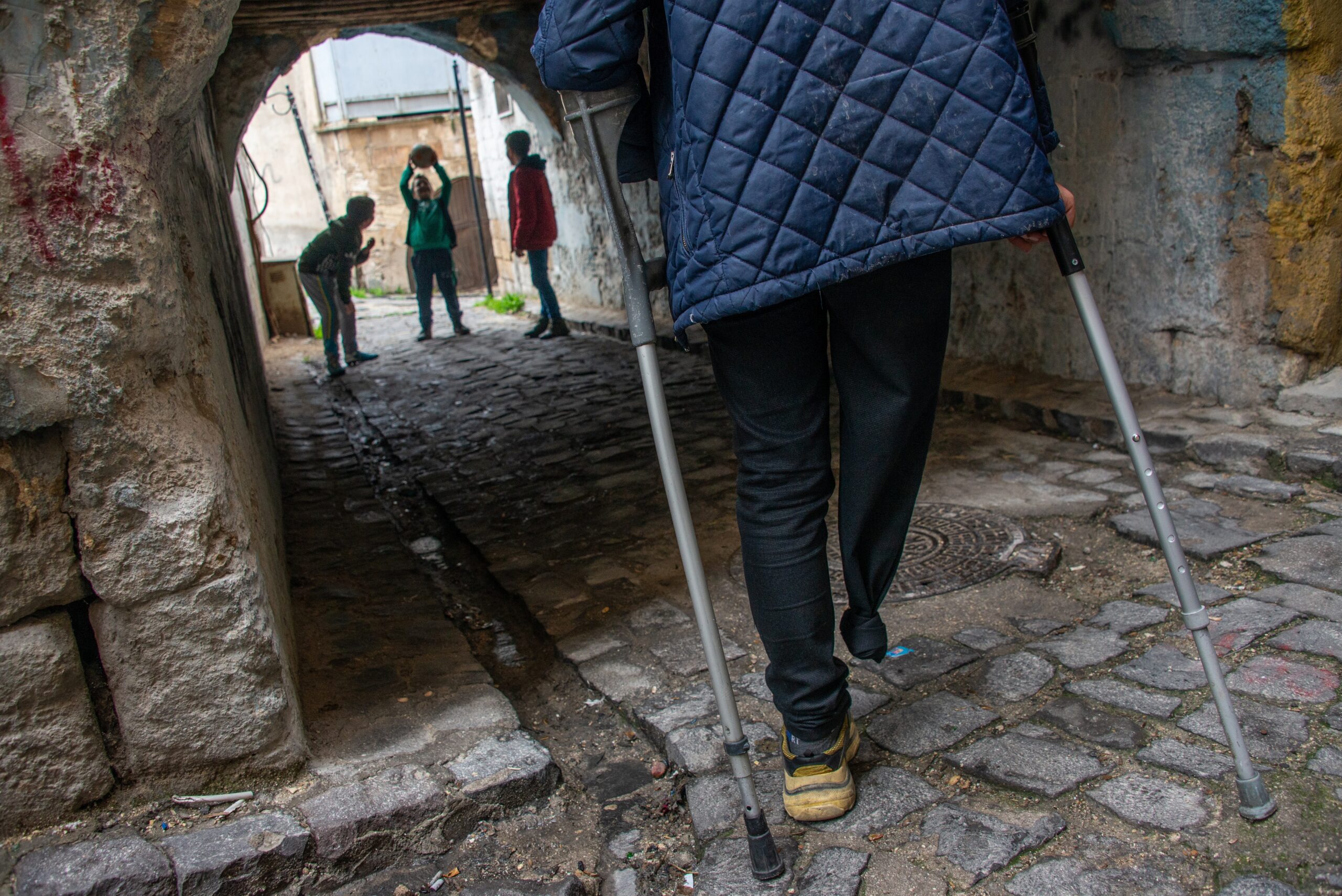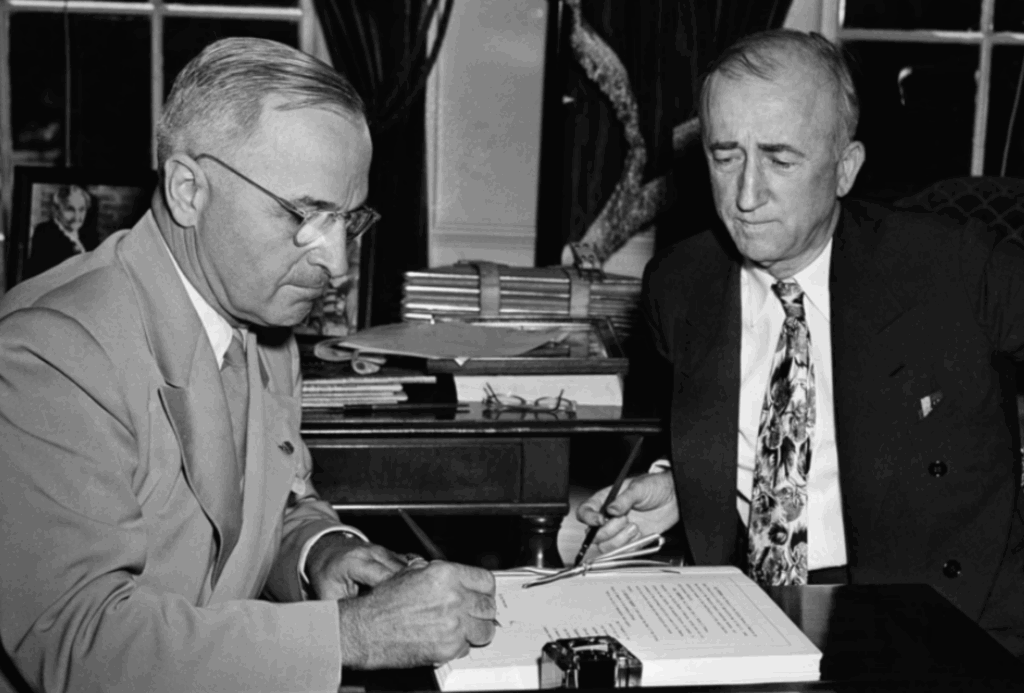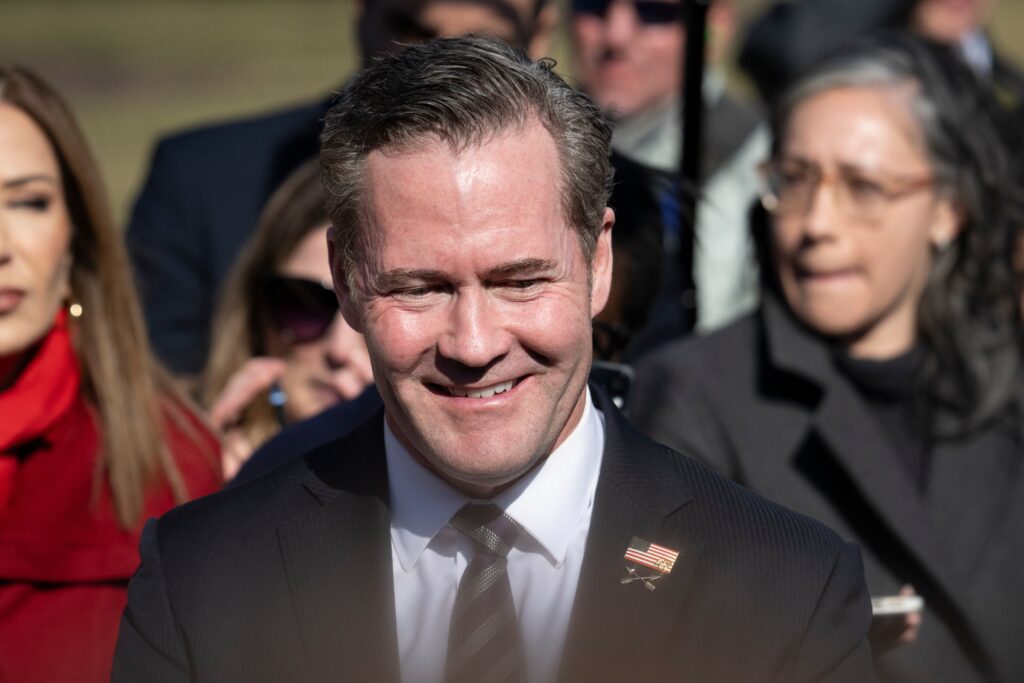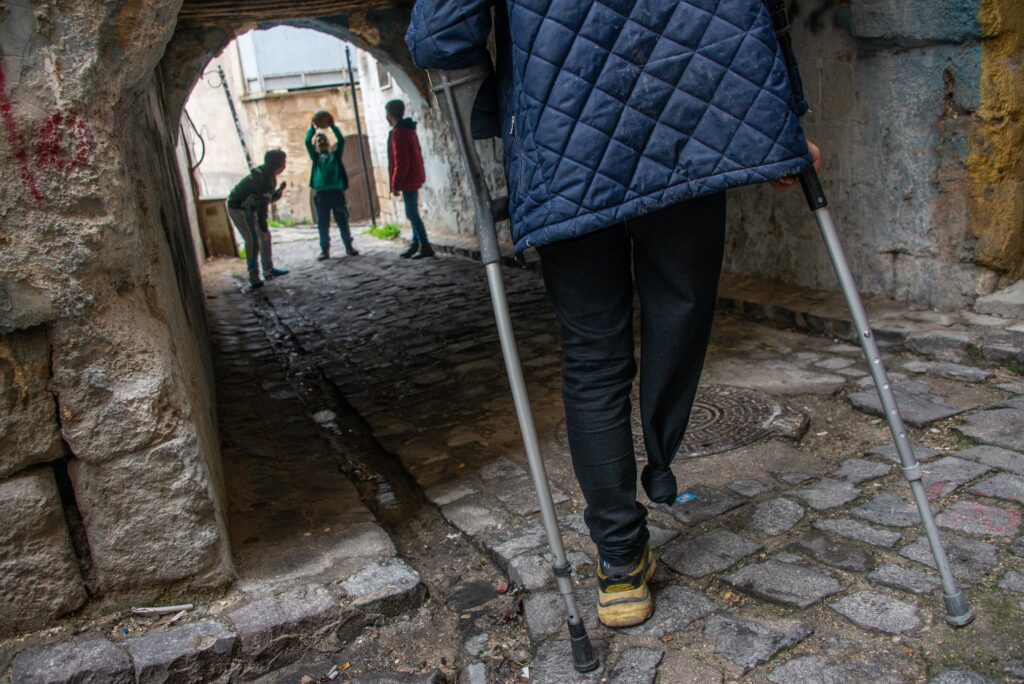Marking the 35th Anniversary of the Americans with Disabilities Act
In 2011, photojournalist Giles Duley laid in a hospital bed after an IED blast in Afghanistan. He had just lost both legs and his left arm. “Every part of my body gave up at some point,” Duley recalled. “But somehow, I was still going.”
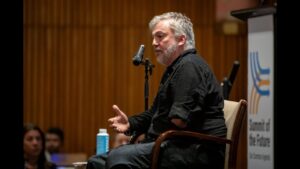
Then came the thought that saved him: You can’t end your story here.
He didn’t. He survived — and then returned. Not just to the war zones that nearly killed him, but to the frontlines of humanitarian advocacy. Today, as the UN Global Advocate for persons with disabilities in conflict and peacebuilding, and founder of the Legacy of War Foundation, Duley travels the world documenting lives shattered by violence and overlooked by policymakers.
But as he insists, “My story isn’t the point. I chose to go to war zones. The people I photograph don’t. War comes to them.”
“My story isn’t the point. I chose to go to war zones. The people I photograph don’t. War comes to them.”
Giles Duley, Legacy of War Foundation
As we mark the 35th anniversary of the Americans with Disabilities Act (ADA), signed by President George H. W. Bush, Duley’s story is so much more than inspiration — it’s a call to extend the ADA’s promise globally.
A Crisis Within a Crisis
Nearly 50 million people with disabilities require humanitarian assistance. Warning systems don’t reach people who can’t hear or see. Shelters are inaccessible. Aid centers lack interpreters. Families are often forced to leave disabled loved ones behind.
In Gaza, Duley photographed amputees the year before the Israel-Hamas war. After October 7, “Most of them died in the first few weeks,” he said. “I got WhatsApp messages: ‘I’m stuck on the 8th floor. I can’t get out.’ They never did.”
In Ukraine, he saw shelters with stairwells but no ramps. “People with disabilities were hiding in bathtubs because they couldn’t escape. It’s being repeated across conflict zones.”
“In times of war, the way persons with disabilities are treated reveals our commitment to protecting every civilian — not just in principle, but in practice,” said Christelle Loupforest, Officer-in-Charge of the UN Mine Action Service (UNMAS).
“In times of war, the way persons with disabilities are treated reveals our commitment to protecting every civilian — not just in principle, but in practice.”
Christelle Loupforest, UN Mine Action Service
UNMAS: Clearing Mines, Restoring Dignity
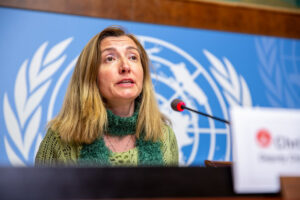
Loupforest has spent two decades at the UN working to protect people from natural disasters and the scourge of war. With UNMAS, an agency best known for removing landmines and unexploded ordnance in conflict zones like Iraq and Sudan, she leads a group of UN agencies, NGOs and universities (known as the Mine Action Area of Responsibility) embedding disability inclusion into humanitarian action.
“We work with a broad array of partners to prevent explosive ordnance accidents, increase survival rates in case of accidents and build the personal capacity of survivors,” Loupforest said.
Partners like EXTRACCT, who — drawing in part on U.S. military trauma systems — work to reduce preventable deaths after blasts. Others are rewriting mine risk education to be accessible: producing sign language videos, tactile maps for the blind and tailored audio alerts for people with sensory or cognitive needs.
Real recovery is often a lifelong journey for survivors — prosthetics, trauma care, rehabilitation and psychosocial services. “Think about how many shoes your own kid has outgrown, for example; for some, a new shoe means a new prosthetic limb,” Loupforest remarked. “On average, a five-year-old child who loses a leg in a mine explosion will need 25 prostheses throughout their life. It’s not a one-time cost — it’s a lifetime investment.”
So Loupforest advocates for ATscale, a global partnership transforming lives through assistive technology. And with the International Committee of the Red Cross, she alerts governments to the critical shortage of skilled professionals in prosthetic and orthotic services.
UNMAS’s latest annual report emphasizes this approach: integrating mine action into stabilization and peacebuilding, not just emergency response. “Mine action isn’t just about removing explosives,” Loupforest said. “It’s about restoring rights and making sure no one is left behind.”
“Mine action isn’t just about removing explosives. It’s about restoring rights.”
Dignity by Design
Fortunately, throughout the UN, humanitarian operations are becoming more inclusive. Emergency alerts now include flashing lights and SMS messages. Refugee camps are retrofitted with accessible latrines and shelters. Aid kits include hearing aids and canes. Where hospitals are gone, mobile clinics provide trauma counseling in sign language and battery support for ventilators and wheelchairs.
Even basic upgrades — like leveling a muddy path — can mean the difference between survival and isolation.
Still, Duley warns, “In some camps, no one even knows who has a disability. We’re not tracking it. We’re not funding it. So people disappear into the margins.”
Funding the Work
“The decrease of U.S. funding has had a devastating impact on the mine action sector,” Loupforest warned.
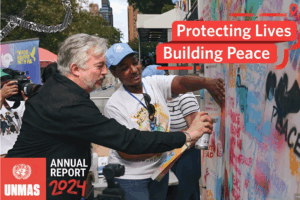
NGOs have laid off hundreds of staff — mostly nationals of affected countries. In Colombia, 42% of UNMAS partners report direct impacts from U.S. cuts. Teams are adopting short-term strategies that jeopardize stability, just as violence is rising.
In 2024 alone, 719 people in Colombia were killed or injured by explosive ordnance — the highest since 2016.
In Mali, the termination of the UN peacekeeping mission in 2023 and a canceled USAID grant forced UNMAS to shut down completely. In Afghanistan, clearance teams have been halved.
And the consequences ripple. Without funding for survey and clearance, agriculture stalls, schools stay closed and refugees can’t return. As both Loupforest and Duley underscored, these efforts allow “FAO to restore farms, UNDP to manage debris, UNICEF to get kids back in school, UNHCR to plan safe returns and WFP to deliver food without triggering explosives.”
What’s most heartbreaking, Loupforest noted, is that life-changing support doesn’t cost much. “Sometimes just a few hundred dollars funds a peer hospital visit — someone who’s been there and offers hope no doctor can.”
In Uganda, survivor and her friend Alex Munyambabazi leads the Amputee Self-Help Network, helping others through sports, skills training and community.
“These aren’t just programs,” said Loupforest. “They’re lifelines.”
“These aren’t just programs. They’re lifelines.”
Changing the System, One Story at a Time
Organizations like the Legacy of War Foundation — founded by Duley — are building new models for deeper, more human-centered impact.
In Rwanda, they launched Land for Women, combining agriculture, business training and land ownership for genocide survivors and women with disabilities. In Ukraine, they deliver mobility aids and evacuate those who can’t flee alone. In Lebanon, they’ve housed families with complex needs, including refugees with multiple disabilities.
Their approach is local, lean and dignity-first.
UNMAS is helping elevate these voices. This year, it partnered with Duley to curate Protecting Lives. Building Peace — a global exhibit viewed by over 45,000 people at UN Headquarters. A reminder that policy change often begins with storytelling.
“I’ve stopped thinking of myself as a photographer,” Duley said. “Now I just tell stories that need to be heard.”
A U.S. Legacy Worth Defending
The ADA made the U.S. a global pioneer in disability rights. But outside our borders, less than 2% of humanitarian assistance is disability-focused — and U.S. aid hasn’t kept pace with our values.
“Don’t expect people with disabilities to walk miles or wait in line for food,” said Loupforest. “Services must go to them.”
And services only go where there is funding. With new cuts, freezes and rescissions on the table, inclusive programs are at risk of falling through the cracks.
“We’re entering a very difficult time,” she said. “This is when leaders having a moral compass really matters.”
Duley agrees. “We can’t leave people behind,” he said. “We’ve made too much progress to look away.”
“We can’t leave people behind. We’ve made too much progress to look away.”
